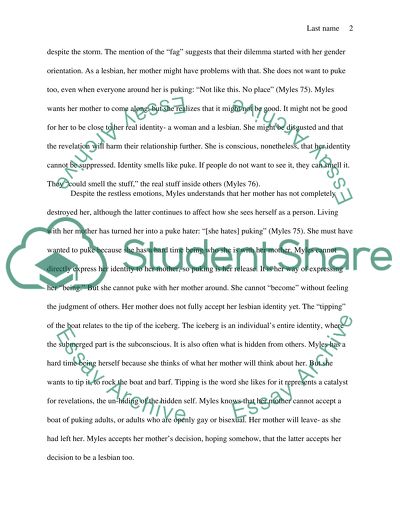Cite this document
(“Barfing as Identity Development and Expression in Myles Everyday Barf Essay”, n.d.)
Barfing as Identity Development and Expression in Myles Everyday Barf Essay. Retrieved from https://studentshare.org/english/1467165-barfing-as-identity-development-and-expression-in-myles-everyday-barf
Barfing as Identity Development and Expression in Myles Everyday Barf Essay. Retrieved from https://studentshare.org/english/1467165-barfing-as-identity-development-and-expression-in-myles-everyday-barf
(Barfing As Identity Development and Expression in Myles Everyday Barf Essay)
Barfing As Identity Development and Expression in Myles Everyday Barf Essay. https://studentshare.org/english/1467165-barfing-as-identity-development-and-expression-in-myles-everyday-barf.
Barfing As Identity Development and Expression in Myles Everyday Barf Essay. https://studentshare.org/english/1467165-barfing-as-identity-development-and-expression-in-myles-everyday-barf.
“Barfing As Identity Development and Expression in Myles Everyday Barf Essay”, n.d. https://studentshare.org/english/1467165-barfing-as-identity-development-and-expression-in-myles-everyday-barf.


